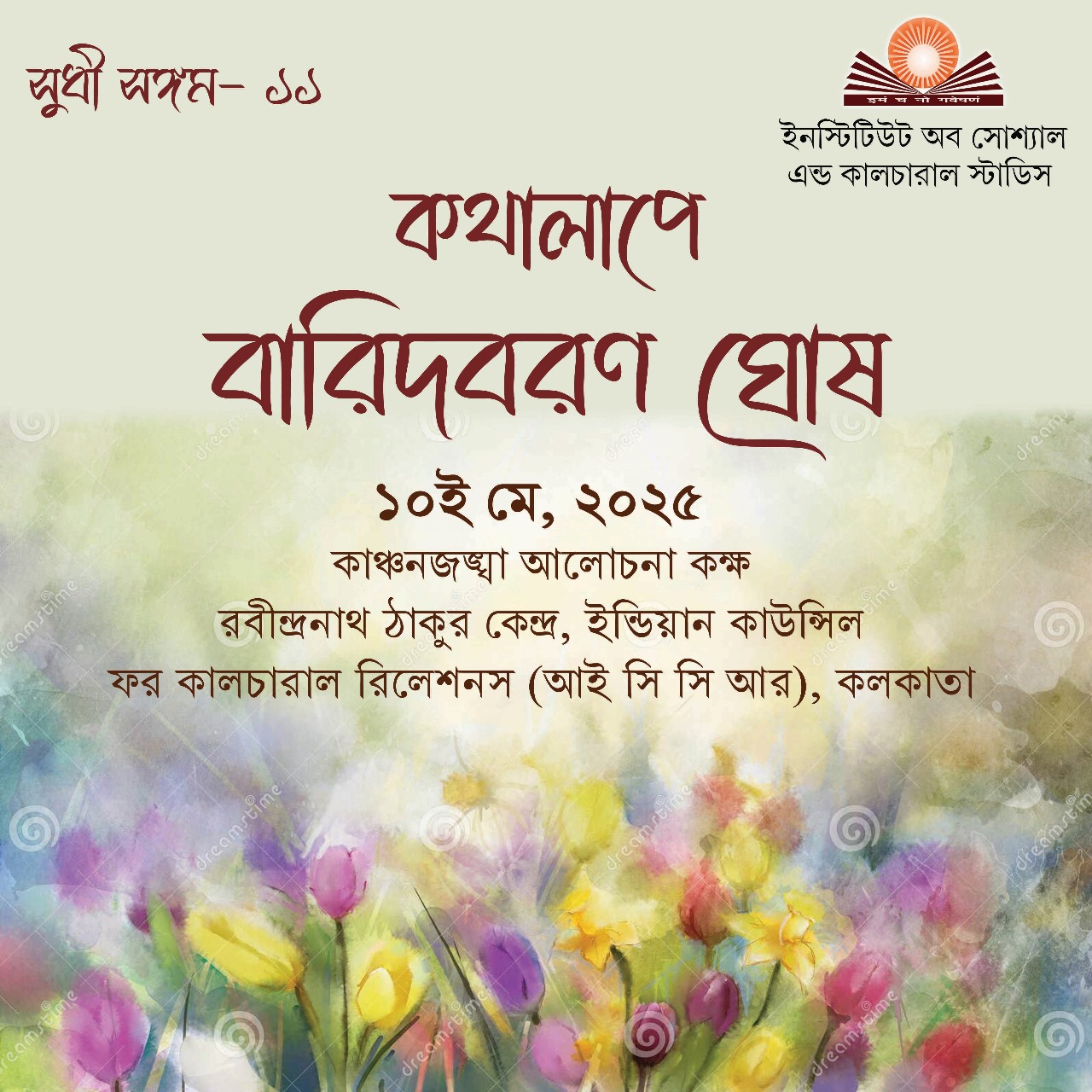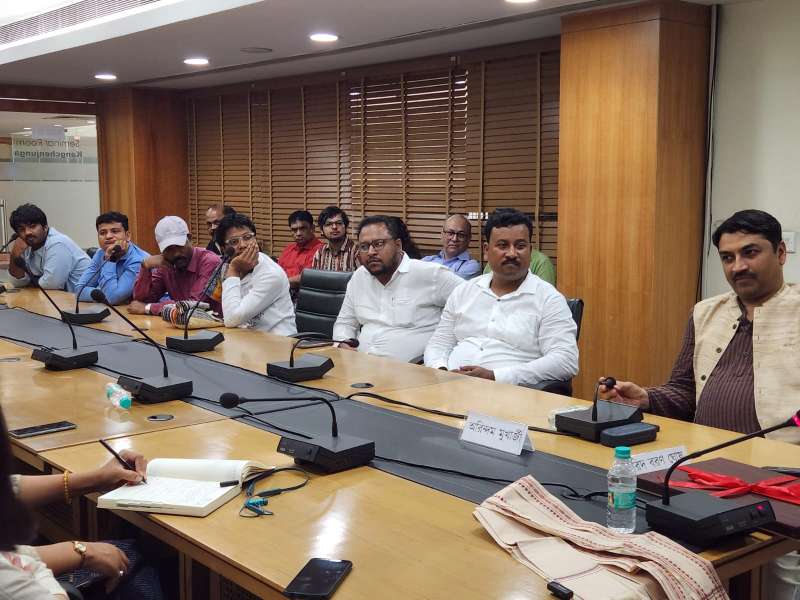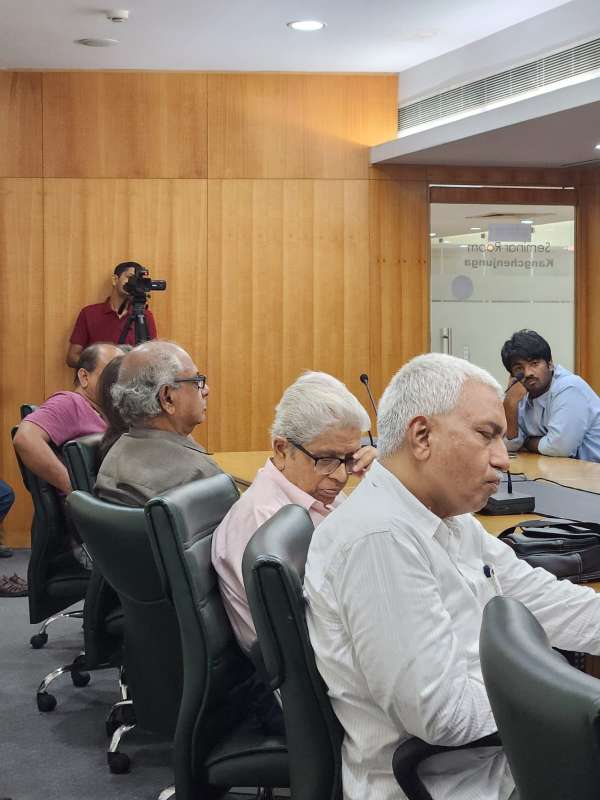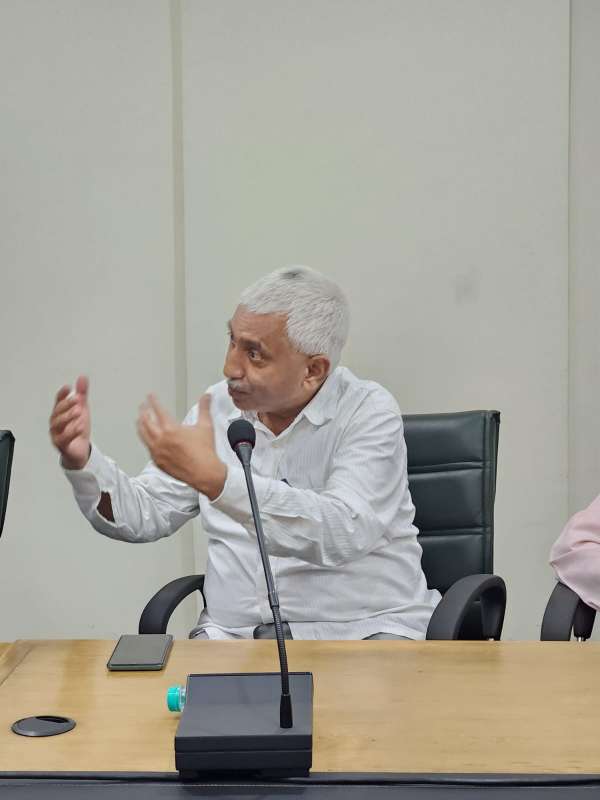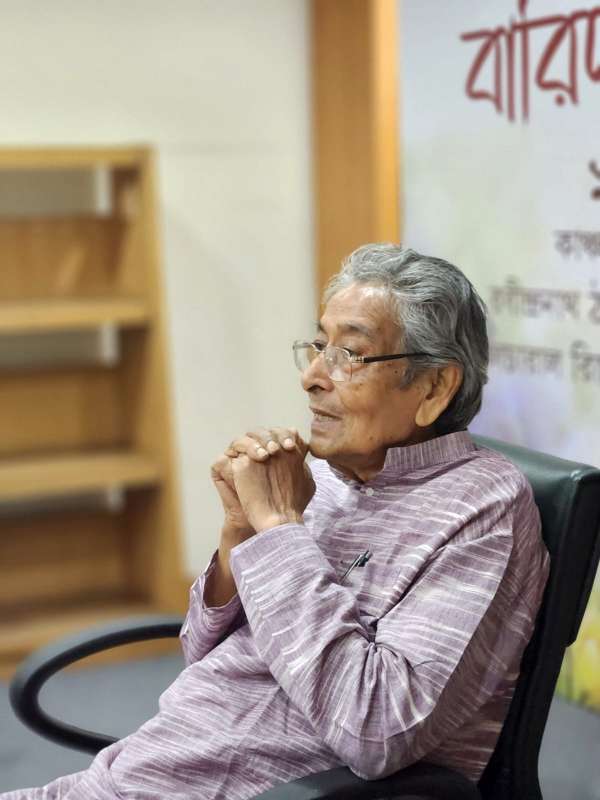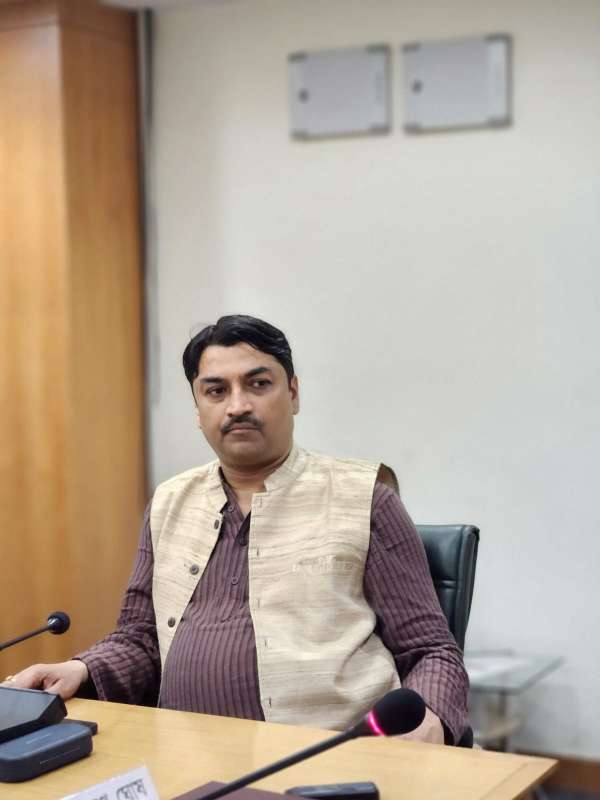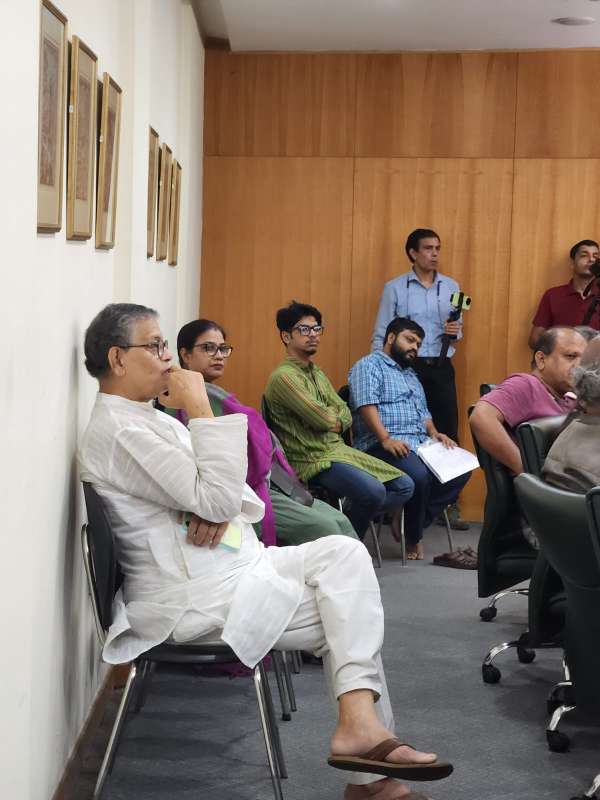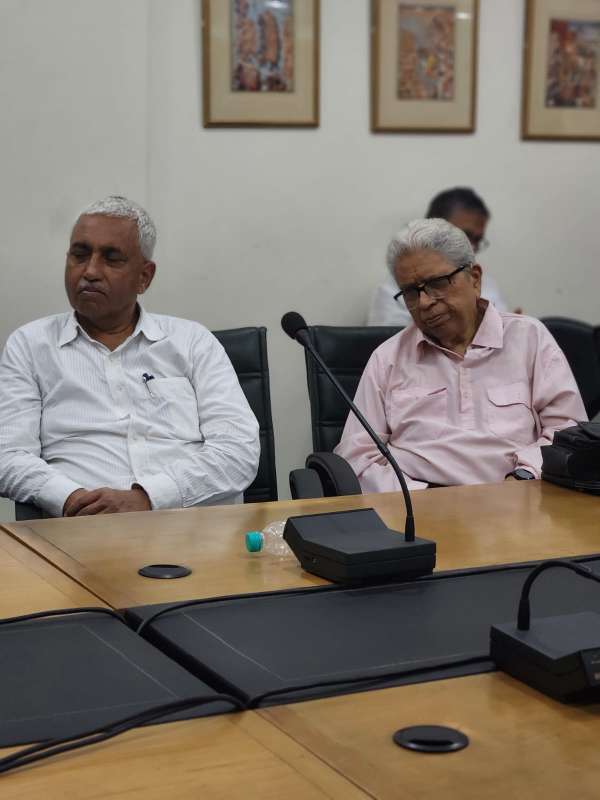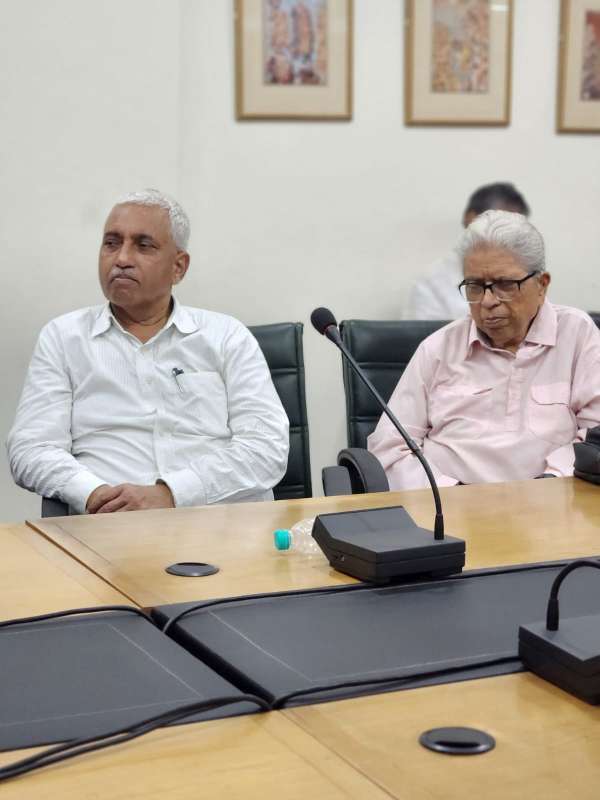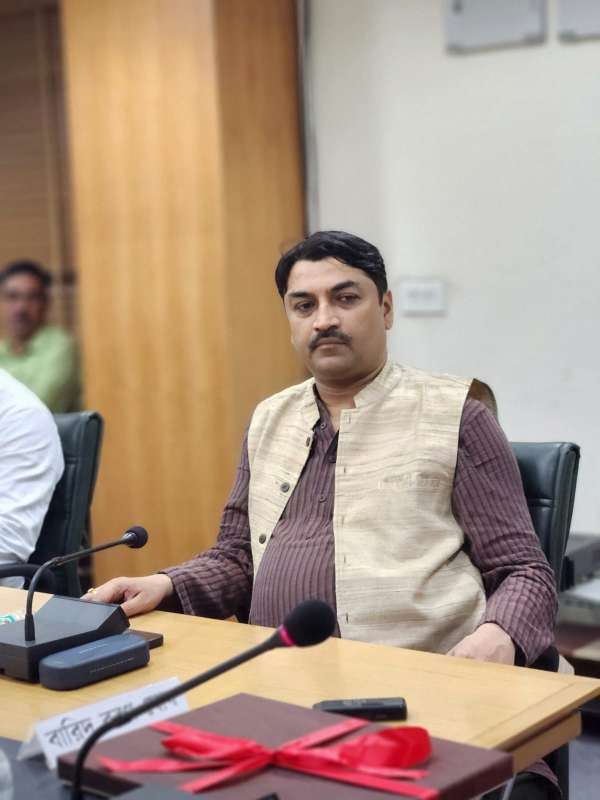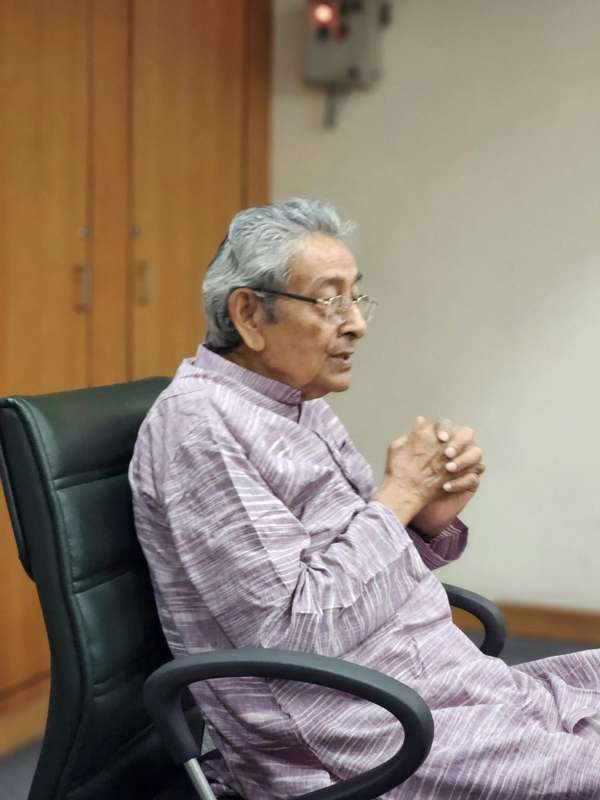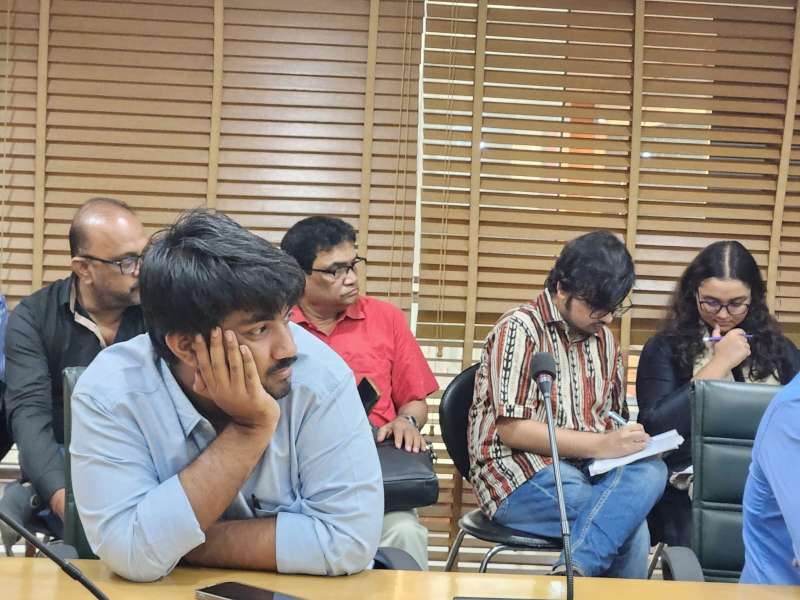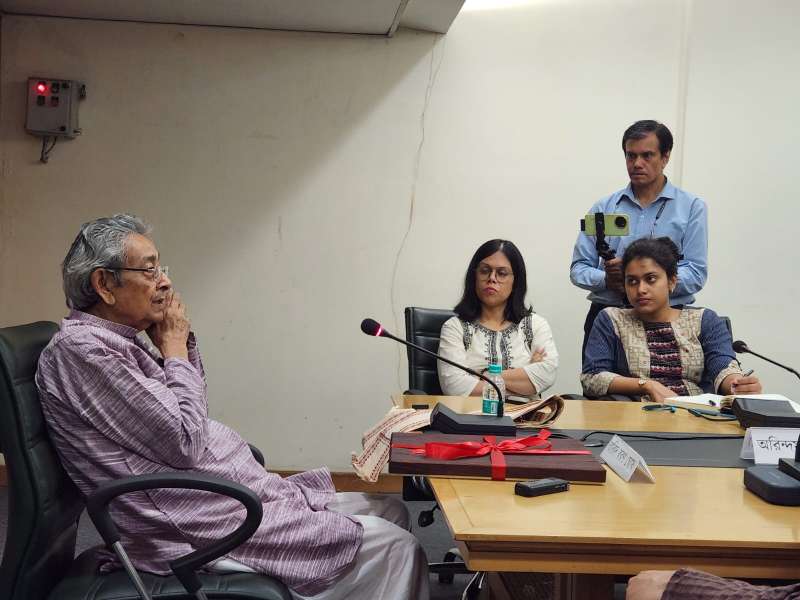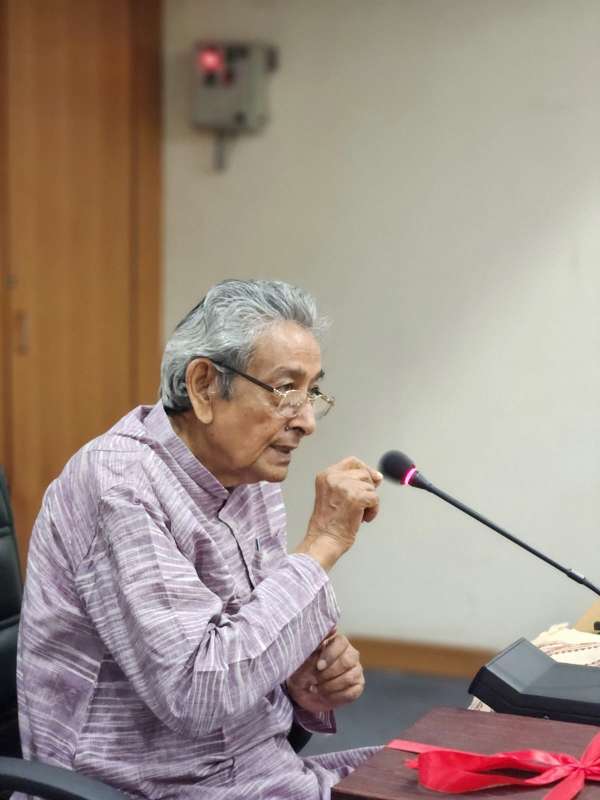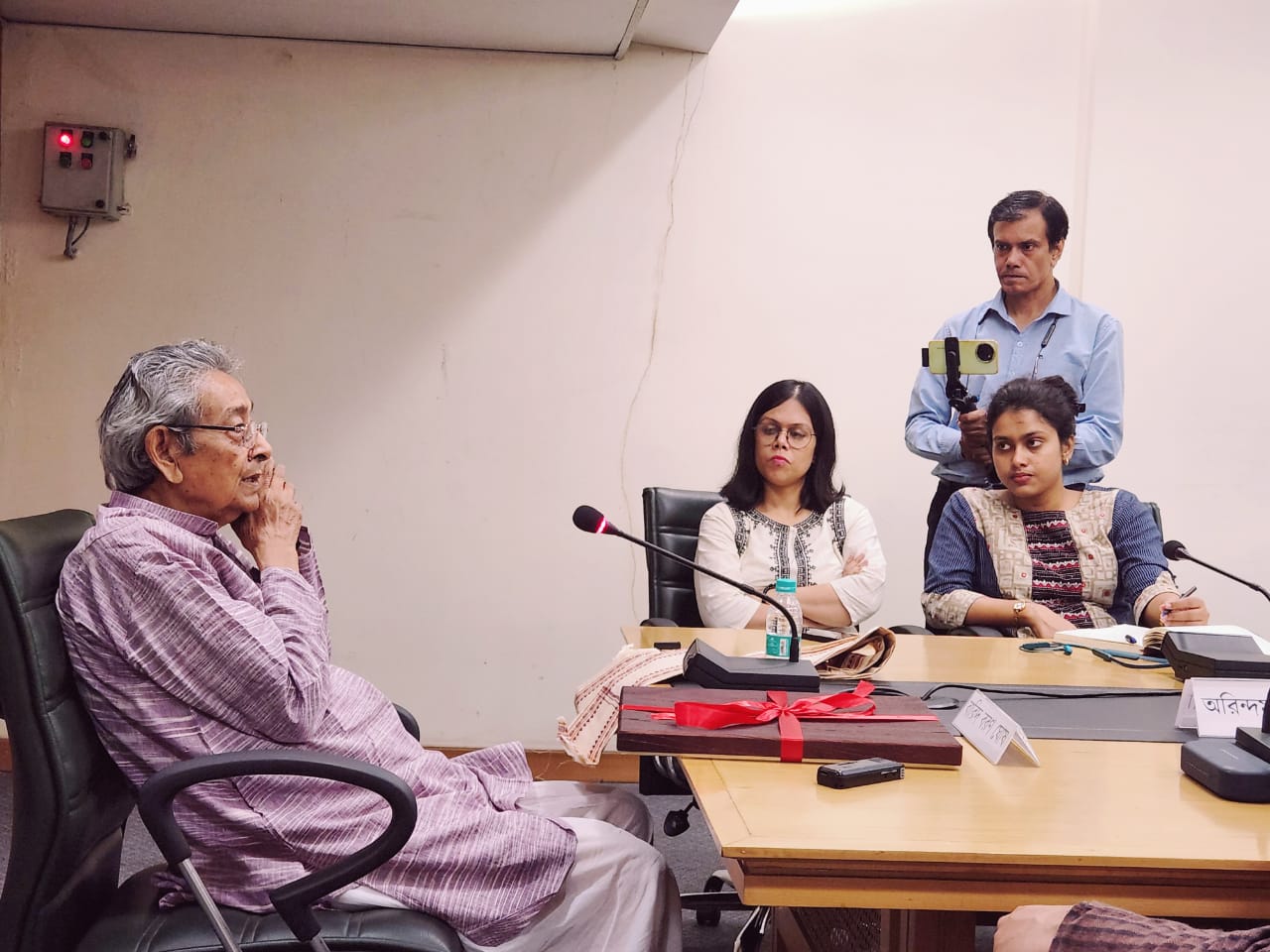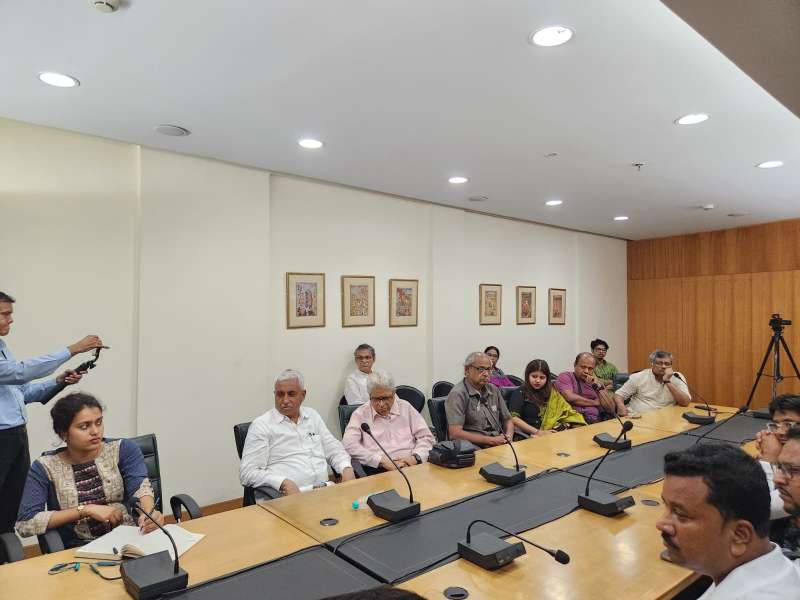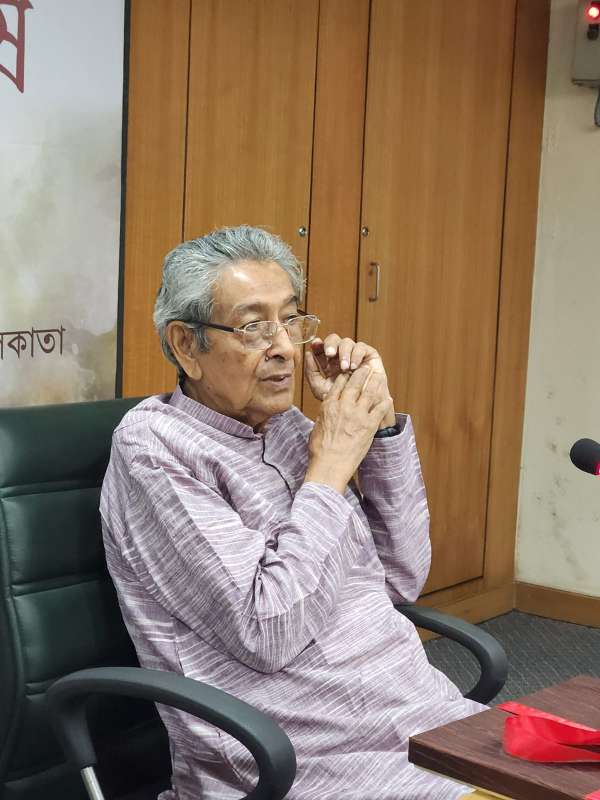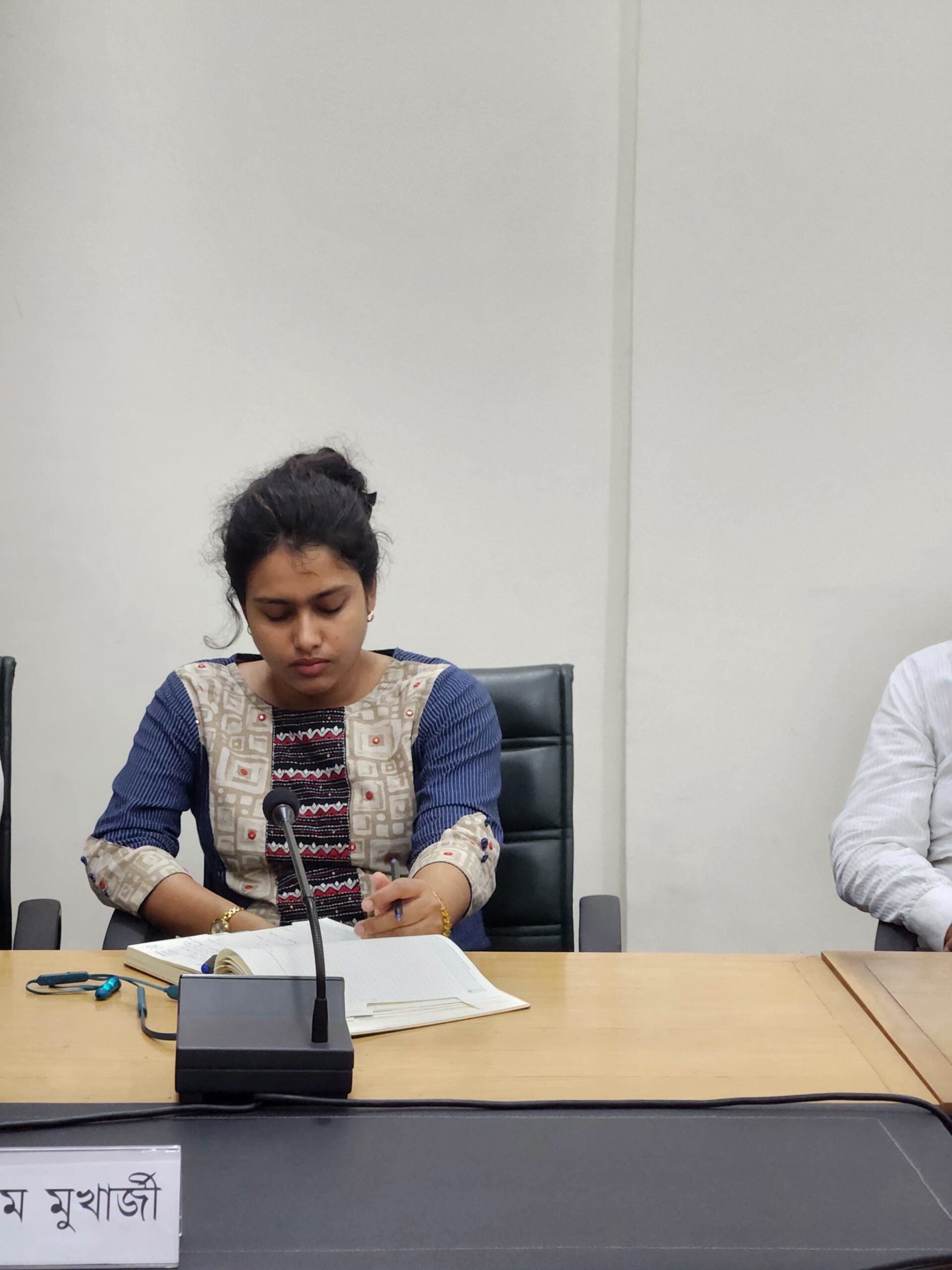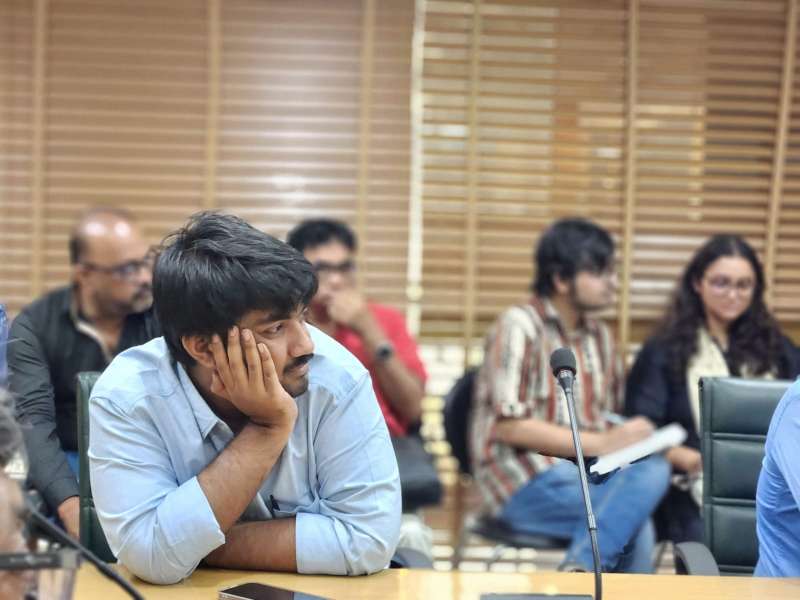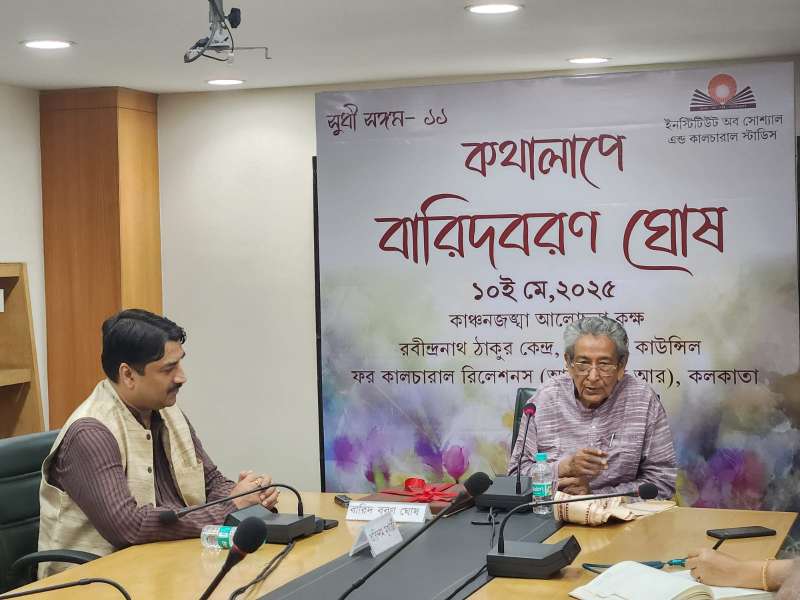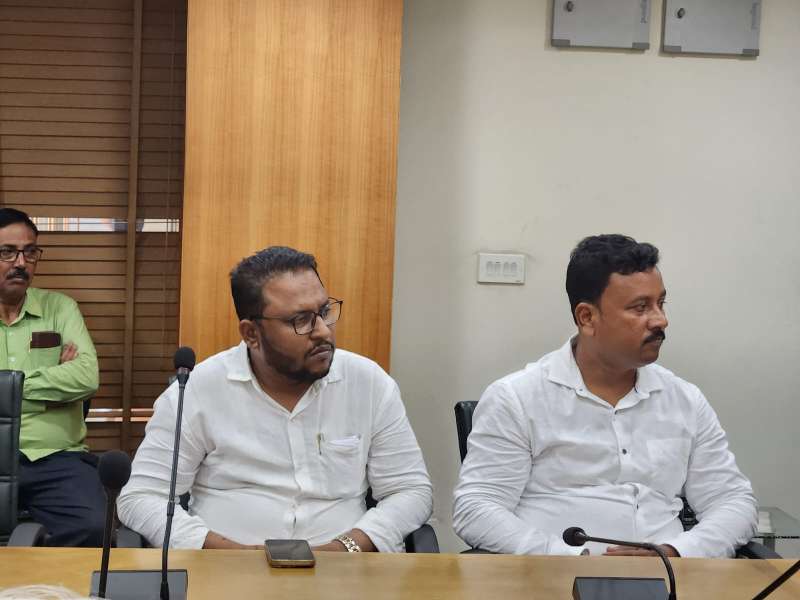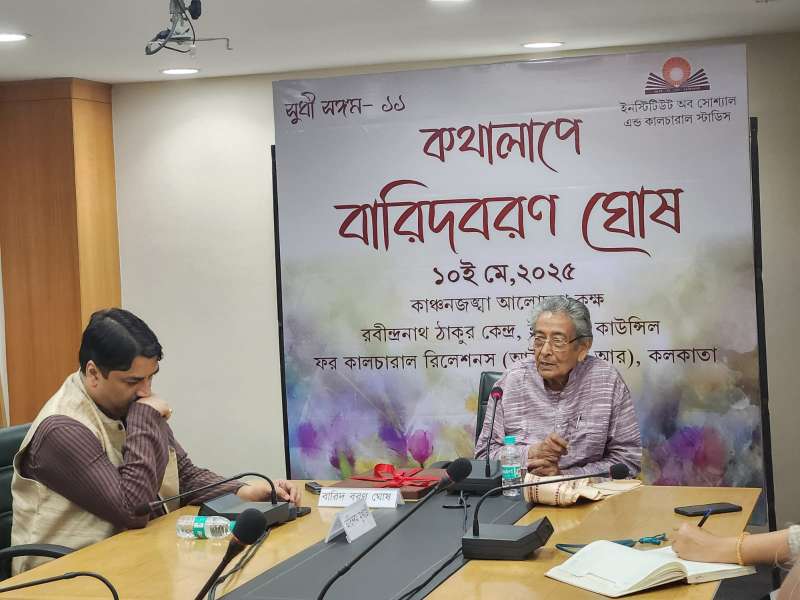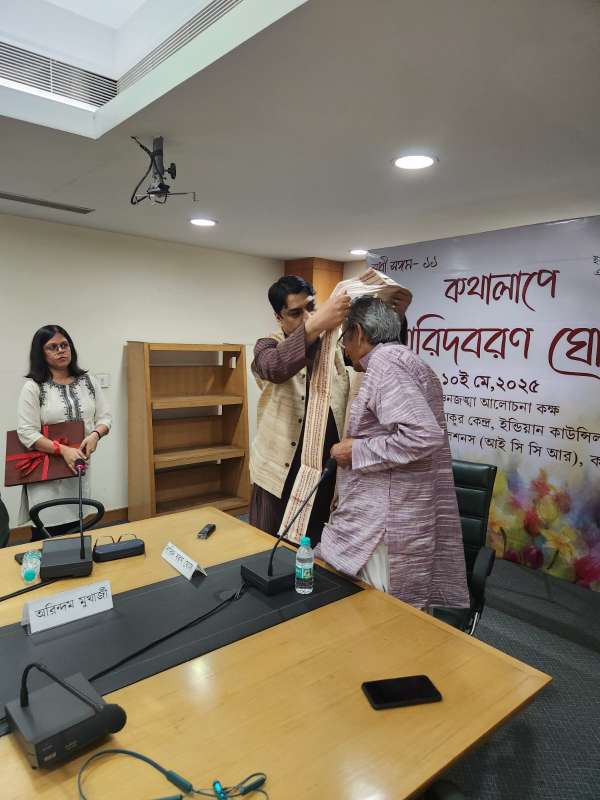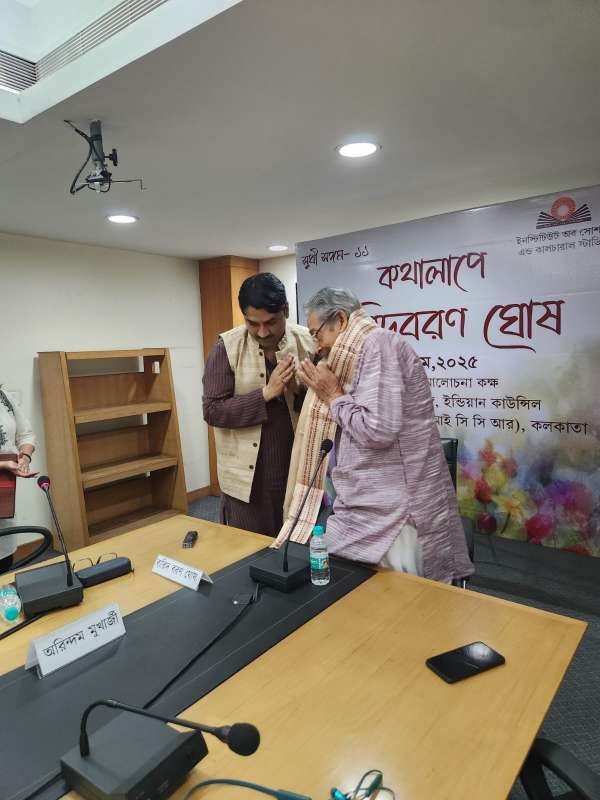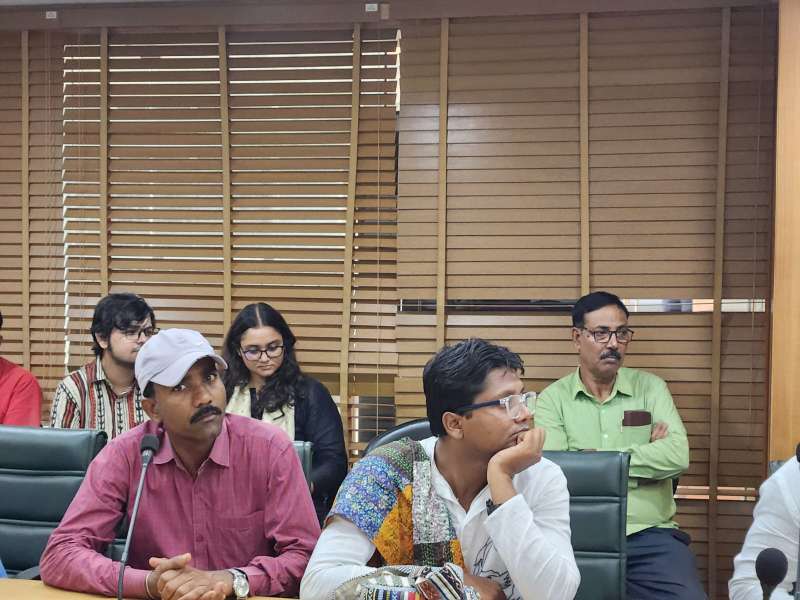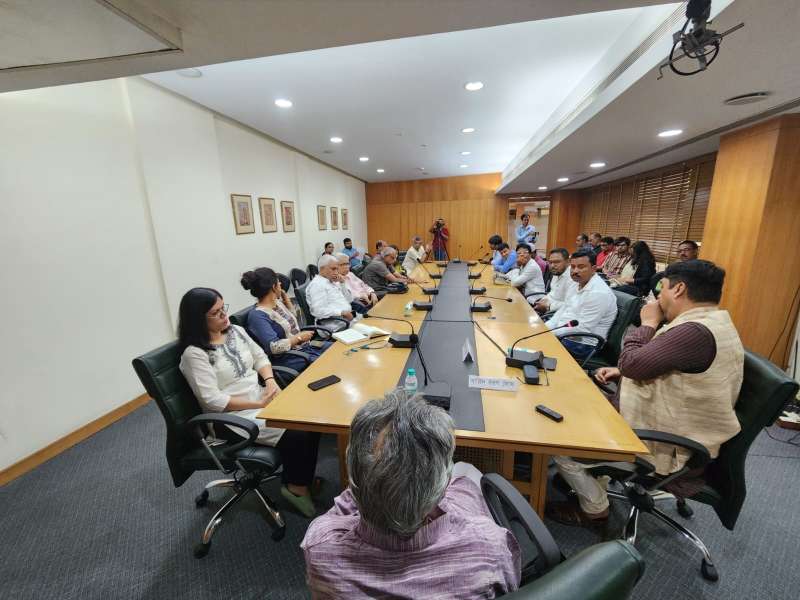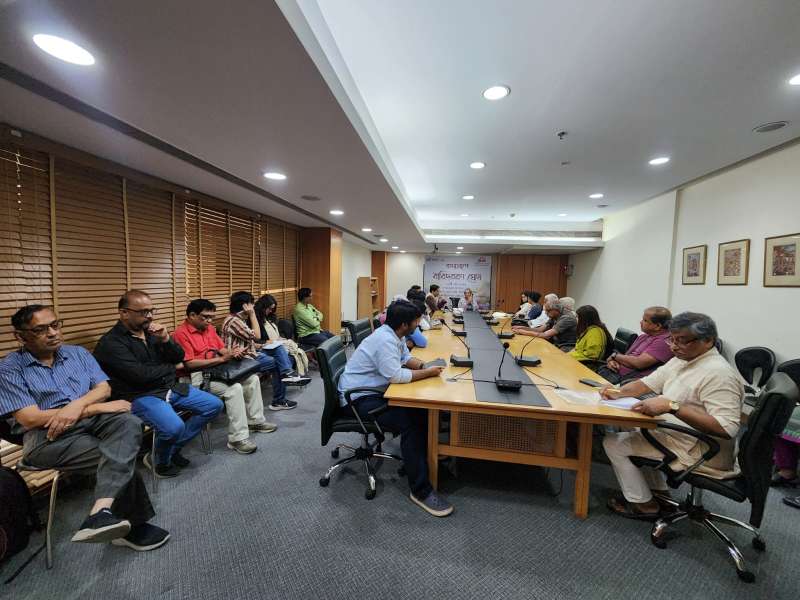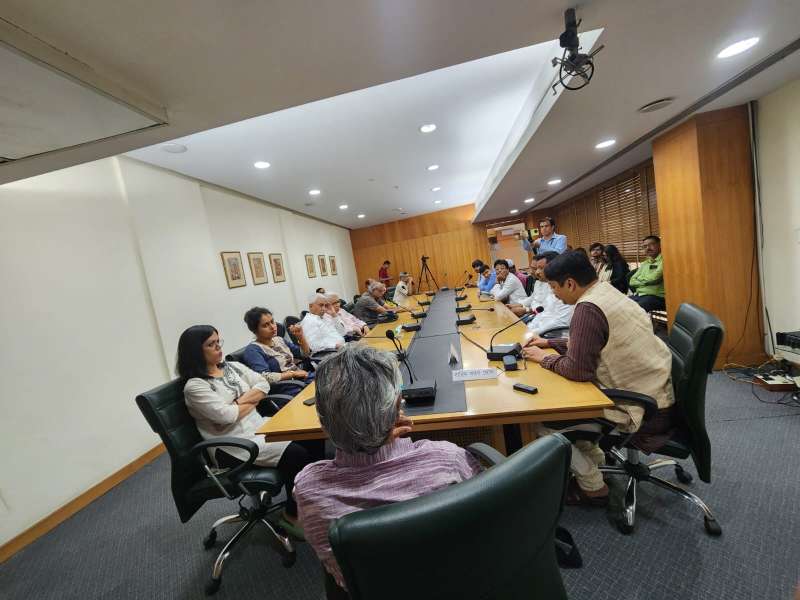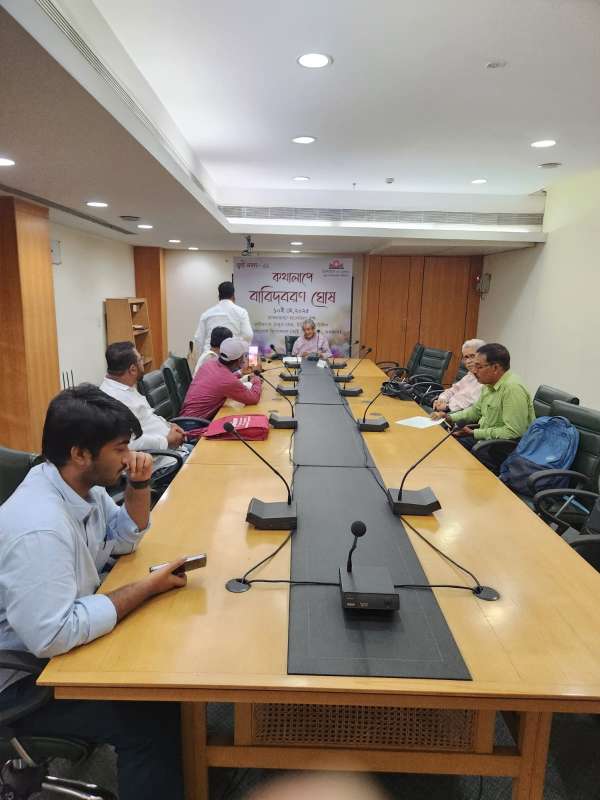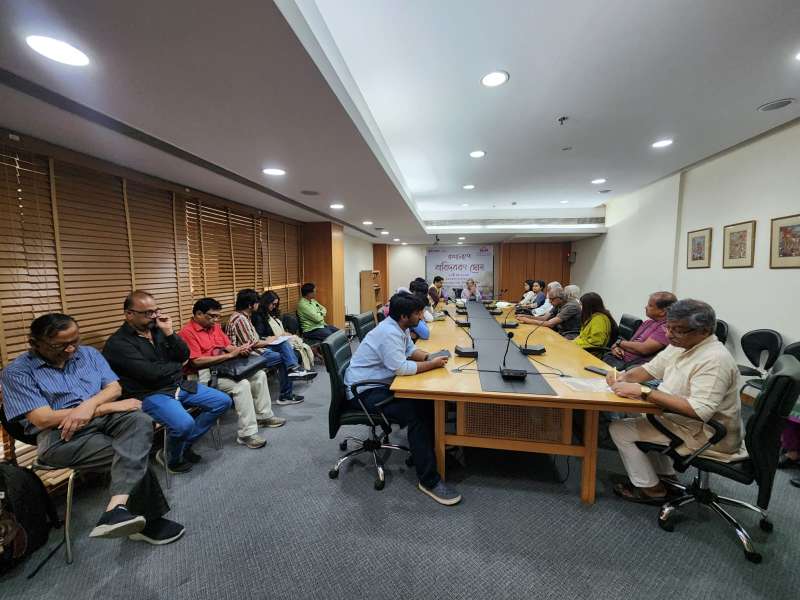Sudhi Sangam–XI
- Organized : Sudhi Sangam–XI
The Institute of Social and Cultural Studies (ISCS) on May 10th organized its XI th Chapter of Sudhi Sangam, the series of lectures which focuses on the contributions of the eminent personalities in multi-dimensional fields. Shri Barid Baran Ghosh, former President of Bangiya Sahitya Parishad as a speaker for the said chapter unfurled his multitude of experience of being surrounded with enriched people and stalwarts of literary field.
The Talk started with a Welcome Address of Shri Arindam Mukherjee, Director ISCS who manifested the importance of such consortiums in the present day. As being harboured in a technical oriented world, the generation at present remains completely curtailed with the importance and essence of literature and iconic authors who played a magnificent role in manoeuvring realities of world, politics, state and culture for the common people.
The veteran speaker of the event while summarising his life time experience rewind back to his rural roots of Bengal as his childhood stretched in the landscape of Bolpur, Birbhum known not only for its red soil and the shallow serpentine rivers ridden with sand islands, but also for the notable poets. Yet a gateway to the cultural diadem Shantiniketan. The unique mix of literature, poetry, world renowned entities which the region surrounded with played a major role in cultivating love, fascination and aspiration to become a writer for Shri Barid Baran Ghosh.
In his address he mentioned Bridul Shekhar Shastri, Khritimohan Shastri, Suniti Pathak and many more who had served the speaker as a source of an inspiration and initiated his walk and journey on a broader sense in the literary world altogether.
On the course of his journey as a writer and later as a President of Bangiya Parishad he shared his experiences saying that in today’s time students due to extensiveness of education, aspiration of seeking a good job diminishes their interest towards pursuing literature or the rich repository of literature that Bangla remains compounded with.
The aspiration towards attaining a good job reduces interests of young students towards perusal of Bangla literature, which in the long run can become a threat as the rich legacy of poets and canopy of their ideas would slowly become tarnished. He applauded the institute’s initiative of bringing out such a vibrant range of publication in Bangla language, written in simpler tone, paper packs instead of voluminous compilation would actually be a catalyst of bringing back interest and reengaging young writers to define their ideas in Bangla.
The event featured a question and answer session between the speaker and the audience regarding the evolving trends in Bangla literature, which also forecasting its future. He emphasized the significance of digital publications and archives as crucial tools for expanding the reach of literary collections, breaking down the barriers of time and distance.
The interesting evening with an engaging discussion marked its conclusion with a vote of thanks and a promise by the institute member to return soon with yet interesting sessions, contemporary dimensions for its supporters and followers.




